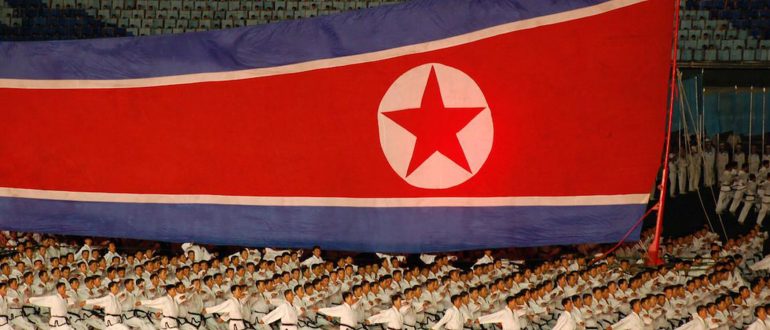
China and North Korea: A strained Alliance
Recently, the Korean Peninsula has been marred with repeated tensions, as North Korea conducted its fourth nuclear test in early January and launched a long-range rocket on February 7. Despite the United Nations’ announcement in March to enforce further international sanctions that ban member states from importing iron, iron ore and coal from North Korea other than for “livelihood purposes”, the Pyongyang regime again fired several rockets from its east coast into the sea in late March. These launches can clearly be viewed as a statement of defiance by the government under Kim Jong-un against the numerous criticisms voiced by the international community. They also show that, as long as China does not strictly enforce the UN sanctions it signed up to, North Korea will have no incentive to halt its nuclear program and missile tests.
China accounts for approximately 70 per cent of North Korea’s trade. In turn, Pyongyang is China’s third biggest supplier of coal. And although Beijing has voiced support for the newly implemented sanctions against North Korea, consequently curbing trade with the regime in the important border city of Dandong, other major traders at China’s north-eastern ports have yet to receive any instructions from the Chinese government on limiting coal imports from North Korea. Considering the extent to which China has conformed with multilateral sanctions against Pyongyang in the past, however, it is unlikely that such instructions will ever be issued anytime soon.
Since the late 2000’s, Beijing has deepened its intervention in the North Korean economy, becoming the country’s major foreign investor and fuelling cross-border trade through resource extraction. Consequently, friendly relations between the two countries have been maintained at the top-level, albeit slightly less frequent under the reigns of Xi Jinping and Kim Jong-un. The reasons for China’s continued support to North Korea, other than their historical alliance since the Korean War, can be best appreciated when one considers the present state of geopolitical powers of the Asia Pacific: China is in dispute with both South Korea and Japan about territorial questions such as the Senkaku/Diaoyu Islands and Socotra Rock. South Korea’s close relations with the United States and the presence of U.S. military on the southern peninsula have posed another source of disagreements between China and South Korea.
On the other hand, there are no major bilateral points of disagreement between China and North Korea, aside from the latter’s nuclear development. This, however, reaches beyond bilateral relations and is effectively a multilateral dispute, with the United States as North Korea’s main opponent. As it has always been China’s core interest to maintain stability in the Northeast Asian region, as well as its position as dominant power of the Asia Pacific, it is very likely to continue its efforts to prevent a North Korean regime collapse while also attempting to contain Pyongyang’s military aspirations by openly criticizing them. However, while the maintenance of the current status quo might be a viable solution for the near future of North Korea and the Northeast Asian region, Pyongyang’s increasing isolation and economic dependency on China is unlikely to result in any sustainable development and subsequent improvement in the livelihoods of ordinary North Korean citizens in the long term: Chinese investment in North Korea tends to focus on low-cost resources such as mining, while failing to create significant technological progress or capital transfer.
Therefore, the risk of future economic collapse still poses a threat to the Korean Peninsula’s stability – a risk Beijing cannot ignore indefinitely and which will ultimately force it to position itself more clearly towards both North Korea and the international community.
This article is part of IFAIR’s cooperation with the Diplomatic Magazine and was published there first in the issue 05/2016.
